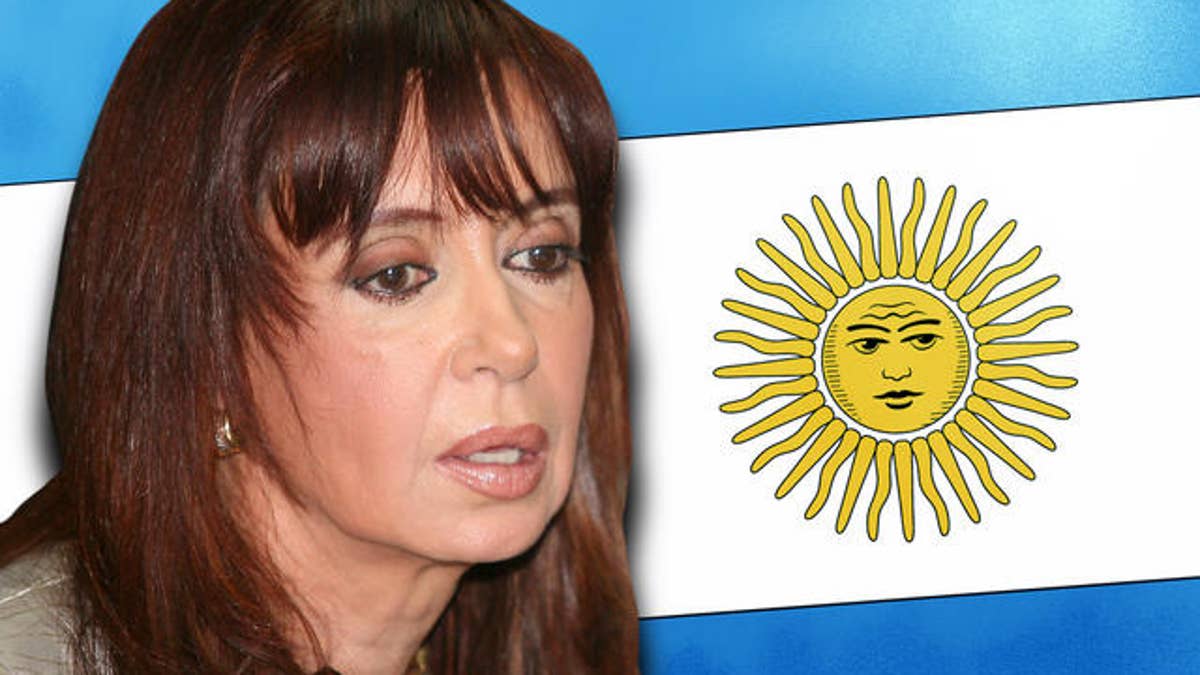
Argentina is awash in drug money, partly because Cristina Fernández and her government "stand to lose" by prosecuting organized crime, according a secret U.S. Embassy leaked by WikiLeaks.
The Dec. 2009 cable is the latest revelation to put Argentina in an unflattering light. The dispatches included communication in which the Embassy was asked to find out if Fernández was taking medicine to control her mental health.
Another leak, from Sept. 10, 2009, shared unsubstantiated allegations that her Cabinet chief had ties to drug traffickers.
U.S. Secretary of State Hillary Clinton personally called Fernández to apologize on Thursday from Central Asia, where she spent much of her time reassuring various leaders that America has good intentions despite the blunt language of leaked diplomatic cables that were supposed to remain classified for decades.
Fernández responded by describing the importance of the friendship Argentina has with the United States, State Department spokesman P.J. Crowley said.
Argentine officials did not comment directly on the money laundering cable, but Justice Minister Julio Alak told a conference of provincial security ministers Thursday that the government "has launched, with all of its weapons and along with the other countries in the region, a battle without quarter against traffickers of drugs, weapons and people."
Many of the cables dealing with Argentina summarize opinions and gossip about the political challenges of Fernández and her rivals.
But the Dec. 1, 2009 cable is something else: a lengthy summary of the country's efforts to combat money laundering. Its conclusion: "The near complete absence of enforcement coupled with a culture of impunity and corruption make Argentina ripe for exploitation by narco-traffickers and terrorist cells."
Citing current and former Argentine government officials with close knowledge of the country's law-enforcement situation, the cable describes a series of challenges, from a lack of funding for investigators, to uninformed judges, to a general absence of political willpower to make any changes in a country where much of the economy operates off the books in order to evade taxes.
The Embassy's guidance to Washington: Don't expect the Argentine government to do anything about it — least of all Fernández and her husband, former President Nestor Kirchner, whose personal wealth soared during their years in office. Kirchner died in October.
The couple had said that they made their money in real estate, and judges have declined to file charges after repeated investigations stalled in the courts.
The cable said Argentina's anti-money-laundering office had refused to respond to requests from Switzerland, Liechtenstein and Luxembourg for investigative reports on allegedly suspicious transactions by the Kirchners themselves.
"Some Embassy contacts argue that the current GoA leadership, including the President, stands to lose from honest and vigorous pursuit of money laundering," said the cable, later adding, "It is probably unrealistic to expect that the GoA (government of Argentina) will funnel resources to prosecutors or make a concerted effort to pursue money launderers. The Kirchners and their circle simply have too much to gain themselves from continued lax enforcement."
The cable said that "although tax cheats and compromised politicians may still be the chief source of dirty money, continued GoA indifference to AML/CFT (anti-money laundering and combating the financing of terrorism) could offer an attractive local staging ground to narco-traffickers and international terrorists. If the GoA does not move to close loopholes and enhance enforcement, it may soon find its financial system contaminated by drug money and terror funds."
Another leaked cable cited "unsubstantiated press and intelligence reports" suggesting that Fernandez's Cabinet chief, Aníbel Fernández, "may be financially profiting from narco-trafficking," and that he personally called off a drug investigation near the Bolivian border.
The cable added that Embassy officials had "no information to corroborate these allegations, and we are unaware of any formal legal complaint against him on narco-trafficking charges."
"Given AF's importance, accessibility, and the absence of hard evidence to substantiate the allegations described above, we continue to meet and work with him. At the same time, there are enough rumors about Fernández — even in this rumor-plagued, conspiratorial society — to approach interactions with him with some caution," the cable advised.
Aníbel Fernández responded in a television interview late Wednesday night that "I'm not prepared to give credit to this stupidity."
"Our administration is the only one in the entire world that has detained bands of narcos like nobody else," the Cabinet chief declared. "That's the only explanation I'm going to give."
Embassy spokeswoman Shannon Farrell condemned the unauthorized disclosures, and stressed that the diplomatic cables are by definition preliminary and incomplete, and thus don't represent U.S. policy. She said the information "may be merely the opinion of the reporting officer or a compendium of the opinion from a variety of local sources designed to convey the variety of interpretation, speculation and debate."
"The United States is committed to freedom of expression, and to fostering a broad diversity of opinion in our communications — including our internal communications and deliberations," Farrell added. "To protect the candor and integrity of that communication process, our internal reporting is often classified."
Based on reporting by the Associated Press.
Follow us on twitter.com/foxnewslatino
Like us at facebook.com/foxnewslatino




